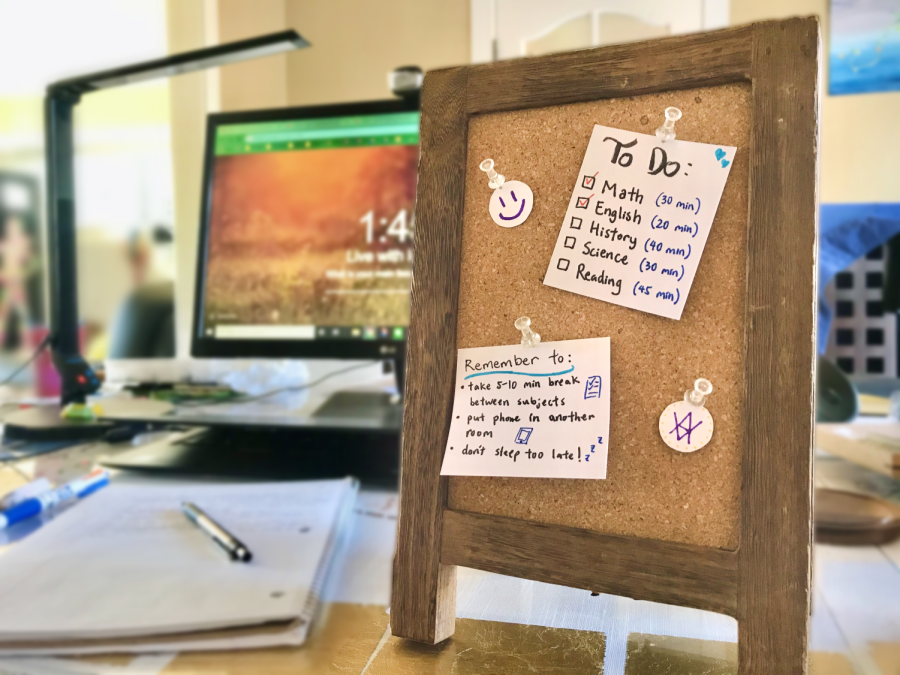Working alongside the clock: time management
Daily plans do not need to be extra detailed, but if they are too vague, they can be easily forgotten or ignored. Sometimes, simplicity and clarity are all that is needed.
February 20, 2022
Time management is something that many struggle with. It takes self control, focus, and the ability to prioritize well. Good organization results in well-structured routines and healthy habits, and there are several ways to create and maintain a stable schedule.
“I’ve heard about many ways to manage time, but I prefer to just keep it simple and make to-do lists. I like to finish my homework early, so I’m not too hung up on how I plan things out. I’m good as long as I get the work done efficiently, but how people manage their time honestly just depends on their own habits and preferences” said Kurtis Bauman (‘24).
Daily routines have a strong influence on people’s mindset and perspective, as well as their productivity and focus. Finding that equilibrium would help people build good habits that manage their time well, and the consistency would improve mental awareness.
“I think I have a pretty routine schedule. I find it helpful because having that daily pattern is a way I can maintain a well-balanced after-school schedule and spread out my work so that I don’t get overwhelmed. In a way, the repetition also makes me feel more steady” said Anika Parkhi (‘24).
Individual schedules change from day to day, so it is important to include some leeway time in order to be prepared for any unexpected circumstances. Since everyone has their own extracurriculars, flexibility is also key in making the proper adjustments.
“Basketball practice takes up a lot of my time, and it’s gotten a lot busier lately. Sometimes, the practices last really long and end late, so I don’t have as much time to do my homework while maintaining a good sleep schedule. But because I usually wake up early, I also have some free time in the morning to finish up more of my work before going to school,” said Parkhi.
After a long day, people typically feel drained and unmotivated. Many would try to delay completing their work, mostly because they are unwilling to tackle their seemingly endless amount of tasks. Fortunately, there are several ways to overcome procrastination, and people are always finding new solutions that accommodate their situation best.
“I don’t actively try to procrastinate, but sometimes I’m just really unmotivated to do my homework–especially if I have a lot of notes to take. So I sometimes just avoid doing the work by ignoring it and just scrolling through social media. I’ve been trying to get myself better study habits for the new semester, but habits like avoiding work are still hard to break, especially since I’ve gotten used to staying up late,” said Juliana Yang (‘24).
Procrastination often leads to late nights of cramming. The scramble can be stressful, and it definitely does not benefit anyone’s sleep schedule. Fortunately, people can try various strategies that help them focus and finish their work on time without cutting it too close.
“I can’t say I’m the best at managing my time, but I do sometimes try different methods to help me concentrate, like putting away anything that might distract me, or switching up my work order to clear my head. I think it’s helpful to just try many different time management methods, because nobody is the same and it all depends on what works best for them” said Janet Xing (‘23).





